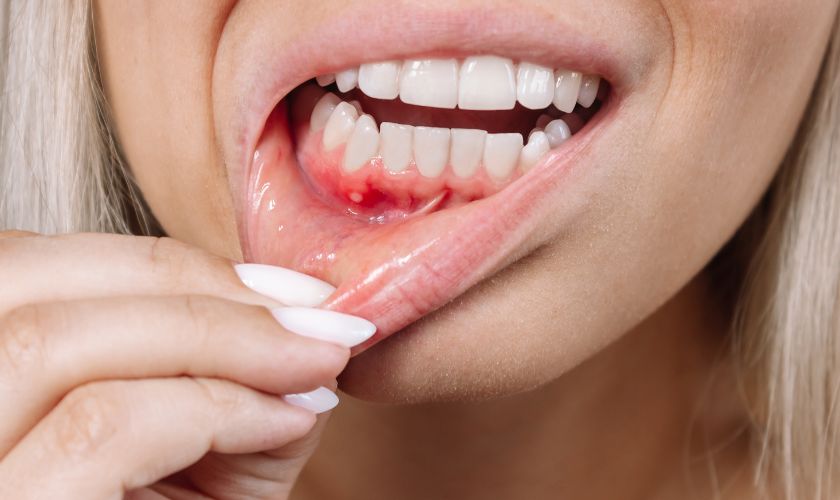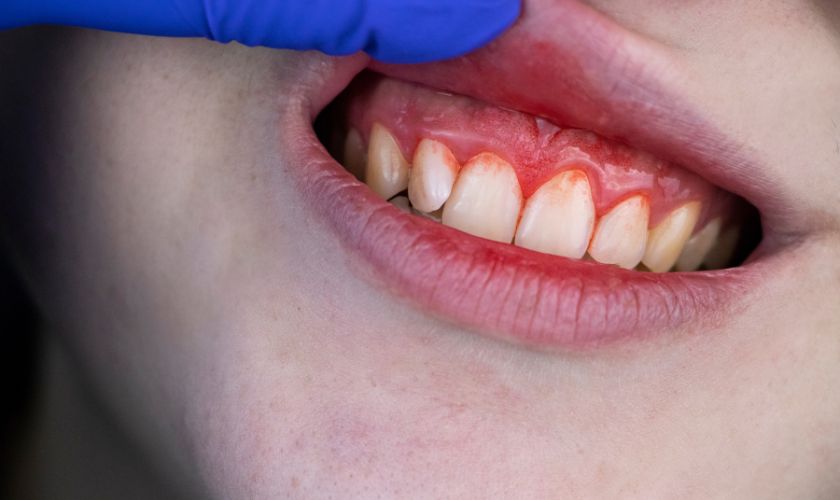(703) 372-5665
Tips for Diabetes Patients to Avoid Gum Disease

Tips for Diabetes Patients to Avoid Gum Disease
Gum disease is a severe problem among diabetes patients. Gum problems can arise due to many factors, including poor oral hygiene, lack of periodontal treatment, and increased susceptibility to infection caused by diabetes. To prevent gum disease in diabetic patients, they must take proper measures to ensure their gums are healthy. This article provides tips for diabetes patients on how to avoid gum disease, including proper oral hygiene, periodontal treatment options, and lifestyle changes.
Maintain Proper Oral Hygiene
Good oral hygiene is key to preventing Gum Disease in diabetic patients. Diabetes increases the risk of gum disease because it suppresses the body’s ability to fight infection. Therefore, diabetic patients must practice good oral hygiene habits to prevent Gum Disease and other dental problems. Some tips for proper dental hygiene include:
– Brush your teeth twice daily with a fluoride toothpaste
– Floss at least once a day
– Use a mouthwash to help kill bacteria
– Avoid eating sugary foods and drinks
Periodontal Treatment Options
Periodontal treatment is a type of dental care designed to treat Gum Disease. It involves cleaning the gums and surrounding tissue, removing plaque, and treating infection. This type of treatment is often recommended for diabetic patients as it may help to reduce Gum Disease symptoms and prevent further damage. It is important to note that Gum Disease can not be cured, but periodontal treatment can help slow its progression.
Professional Cleanings
Professional dental cleanings are a periodontal treatment used to remove plaque and tartar buildup that can cause Gum Disease. This type of cleaning is done by a dentist or dental hygienist and may include scaling, root planing, and other treatments. These cleanings are typically done regularly as part of routine Gum Disease prevention for diabetic patients.
Antibiotics
Antibiotic treatments are often used as part of periodontal treatment for Gum Disease. These medications can reduce inflammation, kill infection-causing bacteria, and help prevent Gum Disease. They may be prescribed as a pill or mouthwash and should be taken as directed by your dentist or doctor.
Gum Surgery
Gum surgery is a periodontal treatment that may be recommended for Gum Disease in diabetic patients. This surgery involves removing the damaged gum tissue and exposing the infected root surfaces. Gum grafts, bone grafts, and other treatments may also restore lost gum and bone tissue. Gum surgery is typically used in severe cases of Gum Disease and should be discussed with your dentist or doctor before the procedure.
Conclusion
Gum Disease is a serious problem for diabetic patients and can lead to further health complications if left untreated. Proper oral hygiene, periodontal treatments, and lifestyle changes are key for Gum Disease prevention. Diabetic patients need to seek treatment from a dentist or doctor if they are experiencing Gum Disease symptoms. With the right care, Gum Disease can be prevented and managed in diabetes patients.
FAQs
Q: What is Gum Disease?
A: Gum Disease is an infection of the gum tissue caused by bacteria. It can cause inflammation, bleeding, and tooth loss if left untreated.
Q: What are some tips for Gum Disease prevention in diabetic patients?
A: Diabetic patients should maintain proper oral hygiene habits, such as brushing twice daily with fluoride toothpaste and flossing at least once daily. Additionally, for Gum Disease prevention, periodontal treatment, such as professional cleanings and antibiotics, may be recommended.
Q: What is Gum Surgery?
A: Gum Surgery is a periodontal treatment used in severe cases of Gum Disease. It involves cutting the damaged gum tissue away and exposing the infected root surfaces. Gum grafts, bone grafts, and other treatments may also restore lost gum and bone tissue. Gum surgery is typically used in severe cases of Gum Disease and should be discussed with your dentist or doctor before the procedure.






